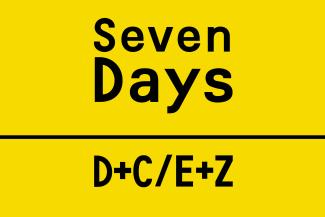In brief
News of the week

Opposition leader wins Nigeria’s presidential election
A former military dictator has prevailed in Nigeria’s presidential election. Muhammadu Buhari, who was the country’s authoritarian leader 30 years ago, beat incumbent Goodluck Jonathan. This was his fourth attempt to become head of state by way of the popular vote, and it was the first time that an opposition leader beat an incumbent president in an election in Nigeria.
Jonathan conceded on Tuesday evening and congratulated Buhari in a telephone call. Buhari praised Jonathan’s gracious conduct which greatly reduced the probability of the kind of post-election violence that rocked Cote d’Ivoire and Kenya when office holders refused to accept defeat at the polls.
International observers said the process was mostly fair, transparent and orderly. The independent election commission was praised for its performance. The digital permanent voter cards it used for the first time are said to have substantially reduced voting fraud. Nonetheless, dozens were killed in violent clashes and terror attacks.
The situation was particularly tense because the government had postponed the election by six weeks on short notice in February. The official reason was that the security forces needed time to deal with the Boko Haram insurgency in Nigeria’s north east. Thanks to military support from neighbouring countries some progress was indeed made against the Islamist extremists. Such international support boosted Jonathan’s standing after he had failed to rise to the terrorist challenge for five years. The postponement also improved Jonathan’s chances of winning because Buhari struggled to fund another six weeks of campaigning.
Buhari has promised to clean up the government apparatus. He won in the pre-dominantly Muslim north, where he is from, as well as in the south-west, which includes the business capital Lagos. Jonathan performed strongly in the oil-rich south-east, but that was enough to prevail.
Sources: Frankfurter Allgemeine Zeitung, BBC
More death sentences, fewer executions
Amnesty International (AI) has counted more death sentences around the world last year, but fewer executions. According to the international non-governmental organisations, at least 2466 persons (28 % more than in 2013) were sentenced to die in 55 countries. The real number is higher because not all judgements are made public. In China, for example, it is difficult to collect precise data.
The human-rights activists have information on 607 executions in 2013, but estimate that several thousands of persons were killedin China alone. Of the known executions, about 75 % were carried out by state agencies in Iran, Saudi Arabia and Iraq. Amnesty pointed out that countries such as Egypt and Nigeria are also relying on capital punishment in their campaigns against terrorism. The organisation stated regret because Indonesia and Pakistan have begun to execute people again. According to AI data, the USA is the only OECD nation that has the death penalty, and 35 executions were counted there.
Sources: Frankfurter Allgemeine Zeitung, Frankfurter Rundschau, Amnesty International
Nuclear deal with Iran
Iran and the five permanent members of the UN Security Council plus Germany have reached a framework agreement on preventing Iran from developing nuclear weapons and easing economic sanctions in return. As Federica Mogherini, the European Commission's vice president and Javad Zarif, Iran's foreign minister, said in Lausanne, where the talks were held, a conclusive agreement is to be negotiated within three months. The framework agreement was concluded on Thursday, two days later than originally planned.
While the deal is expected to be geostrategically valuable because it helps to contain the spread of nuclear weapons, expert opinion on the regional implications for the Middle East are divided. On the one hand, better relations between Iran and western govenments may be helpful. Some argue, however, that as Iran becomes stronger, the country will expand its influence in neighbouring countries. It is already engaged in proxy wars with the regional rival Saudi Arabia in Iraq, Syria and Yemen. Along similarl lines, others speculate that the Israeli government's opposition to a nuclear deal with Iran is motivated more by fear of Tehran-supported militias such as Hizbullah in Lebanon than by concerns that Tehran might cheat and secretly obtaining nuclear weapons after all.
Sources: faz.net, Zeit
Arab League plans joint military force
Leaders of the Arab League agreed to form a joint military force at a conference in Egypt. The decision was taken as the Saudi air force was flying raids against Huthi rebels in Yemen. Other countries of the region are supporting its campaign. The Huthis are Shia Muslims, unlike the majority of Arabs, who are Sunni Muslims. According to the London-based Financial Times (FT), “common Arab action often remains stuck at the rhetorical level”, but the joint plans show “Sunni nations’ determination to challenge Iran’s expanding influence.”
Shia-Sunni violence is already rocking Iraq and Syria. Arab leaders accuse Iran, a country run by Shia fundamentalists, of wanting to suppress Sunnis and reduce the influence of Saudi Arabia. Saudi Arabia is run by a monarchy of Sunni fundamentalists. The FT’s comment was: “It is a measure of how dissolved in chaos this region has become that, while the US is bombing alongside Iran-backed Shia forces in Tikrit, its Saudi allies are bombing Iran-aligned Shia forces in Yemen.” Tikrit is an Iraqi city of which ISIS, the terrorist Sunni organisation, lost hold on Tuesday to Iraqi government forces supoorted by various militias and US air strikes.
Sources: Financial Times, vox.com
Terror attack on Kenyan university
Garissa University in Kenya was assaulted by gunmen on Thursday. They killed at least 147 people. The terrorists were intent on singling out Christians and murdering them, survivors said,but also shooting randomly. When they were surrounded by security forces, four of the attackers detonated vests with explosives, killing themselves and wounding others.
The Nairobi-based Business Daily wrote: "The attack, which happened after two months of relative calm, is expected to delay recovery of the tourism sector, one of Kenya’s key foreign-exchange earners." Garissa is about 200 km away from Somalia, where Kenyan troops are keeping in check the Islamist Al-Shabab militia. The attack on the university was the worst incident of terrorism in Kenya since Al Kaida bombed the US embassy in Nairobi in 1998.
Sources: theguardian.com, spiegel.de, www.businessdailyafrica.com
These items were compiled by Hans Dembowski on the basis of international media coverage.











